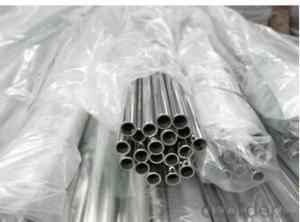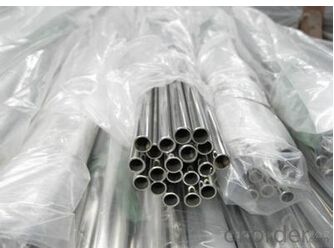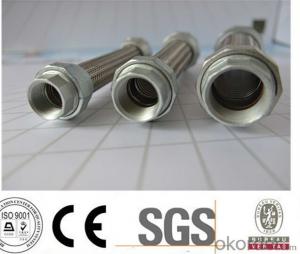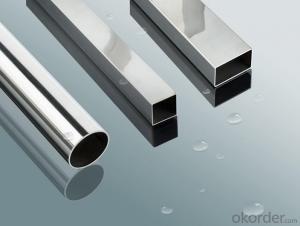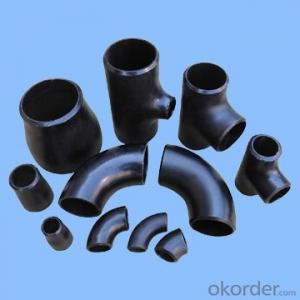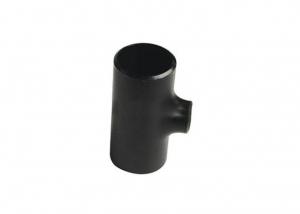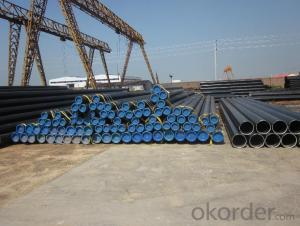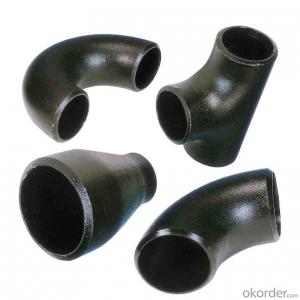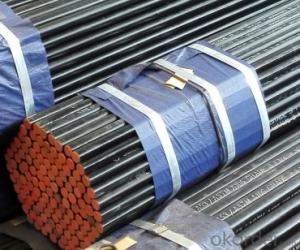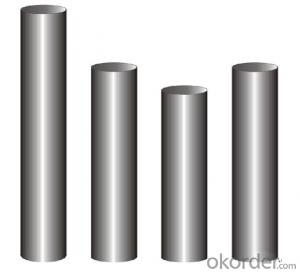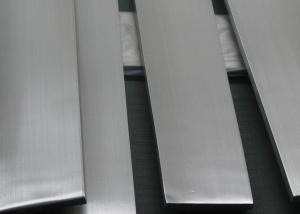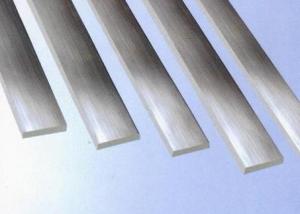Sanitary Stainless Steel Tube for food 3A
- Loading Port:
- China Main Port
- Payment Terms:
- TT OR LC
- Min Order Qty:
- -
- Supply Capability:
- -
OKorder Service Pledge
OKorder Financial Service
You Might Also Like
Specifications
1. Cold Rolled 304 &316L Material2. Highest degree of purity and cleanliness
3. For Dairy, Food, Beverage, and Other Sanitary
Product Name: 3A Sanitary Stainless Steel Tube for food
Materials
304L & 316L available with order.
Introduction
For Dairy, Food, Beverage, and Other Sanitary Applications.
Associated Tube’s sanitary tube is ideal for the dairy, food and beverage industries where the highest degree of purity and cleanliness is essential.
It is certified to the requirements of ASTM A270, 3A standards and most user specifications. Tubing is manufactured from the finest quality raw materials made exclusively to Associated Tube melt parameters.
Customers have come to rely on the quality of our sanitary tube products as well as our uncompromised commitment to total customer satisfaction.
Annealing
Hydrogen bright annealed in line to 1900°F (1040° C) minimum and rapidly quenched.
Surface Finishes
Surface finish is 20 µ-in Ra (0.5 µm) ID maximum, 30 µ-in Ra (0.8 µm) OD maximum surface roughness measured per ASME/ANSI B46.1 with the profilometer reading at 90 degrees to the lay. Other finishes available upon request.
Packaging
As a final step to ensure purity standards, each tube is packaged using 2 mil poly sleeving and both ends are sealed using air tight end caps. Tubes are packaged in protective tri-wall boxing. When specified, wood boxes and all export requirements can be provided.
Marking
Bright annealed tubing is line–stenciled with OD, wall, ASTM specifications, size, grade, heat number, production date and time. OD polished tube is marked on one end of each tube with a removable label stating ASTM specification, manufacturer, grade and heat number. Continuous line stencil available on request.
- Q: Can stainless steel pipes be used in power plants?
- Yes, stainless steel pipes can be used in power plants. Stainless steel is highly resistant to corrosion, making it suitable for various applications in power plants where there may be exposure to high temperatures, pressures, and corrosive environments. Stainless steel pipes are commonly used for transporting fluids such as water, steam, and chemicals in power plants. They are also used in various components such as heat exchangers, boilers, condensers, and turbines. The durability, strength, and resistance to corrosion of stainless steel make it a reliable choice for power plant applications.
- Q: Are stainless steel pipes suitable for irrigation systems?
- Yes, stainless steel pipes are suitable for irrigation systems. Stainless steel is known for its excellent corrosion resistance, durability, and strength, making it an ideal choice for irrigation systems that are exposed to water and moisture. Stainless steel pipes can withstand high-pressure conditions and are resistant to rust and corrosion, ensuring a long lifespan and minimal maintenance requirements. Additionally, stainless steel pipes are also safe for conveying water for irrigation purposes as they do not leach harmful chemicals into the water supply.
- Q: Can stainless steel pipes be used for water treatment plants?
- Water treatment plants can indeed utilize stainless steel pipes. For water treatment purposes, stainless steel pipes offer numerous advantages. Firstly, their resistance to corrosion is highly beneficial in environments where pipes constantly come into contact with water and chemicals. This resistance ensures that the pipes remain durable and long-lasting, thereby reducing maintenance and replacement costs. Moreover, stainless steel pipes possess exceptional hygienic properties. Their non-porous nature prevents the absorption and retention of contaminants, ensuring that the water remains clean and uncontaminated throughout the treatment process. Consequently, stainless steel pipes are ideal for applications that require a high degree of cleanliness and purity, such as water treatment plants. Furthermore, stainless steel pipes are renowned for their strength and reliability. They can withstand high pressures and temperature fluctuations, thereby making them suitable for the demanding conditions frequently encountered in water treatment plants. Additionally, stainless steel pipes exhibit excellent mechanical properties, including high tensile strength and impact resistance, which further enhance their suitability for water treatment applications. In conclusion, stainless steel pipes are an excellent choice for water treatment plants due to their corrosion resistance, hygienic properties, and strength. They provide a durable, reliable, and sanitary solution for transporting water and chemicals during the treatment process.
- Q: Are stainless steel pipes suitable for chemical processing?
- Indeed, stainless steel pipes are well-suited for chemical processing purposes. Renowned for their exceptional resistance to corrosion, stainless steel pipes prove to be an optimal choice when it comes to managing a wide range of chemicals in various processing industries. These pipes exhibit resistance not only towards organic and inorganic chemicals, but also acids, alkalis, and solvents. Consequently, they can endure high temperatures and pressures, thus demonstrating their aptitude for handling aggressive chemicals and upholding process integrity. Moreover, stainless steel boasts hygienic attributes, as it is impermeable and effortless to clean, thereby ensuring the purity of the chemicals undergoing processing. Furthermore, stainless steel pipes possess an extended lifespan and necessitate minimal maintenance, thus presenting a cost-effective solution for chemical processing applications.
- Q: Can stainless steel pipes be engraved?
- Indeed, it is possible to engrave stainless steel pipes. Engraving entails etching or carving designs, patterns, or text onto the surface of an object. Stainless steel is a versatile material that allows for engraving through different methods, including laser engraving, rotary engraving, or hand engraving. Laser engraving, in particular, is highly favored for stainless steel pipes due to its ability to create precise and enduring markings. These engravings can enhance the pipes' aesthetic appeal and also serve practical purposes, such as identification or branding. However, it is crucial to acknowledge that the depth and quality of the engraving may vary depending on the type and grade of stainless steel utilized.
- Q: How do you protect stainless steel pipes from heat damage?
- There are several steps one can take to safeguard stainless steel pipes against heat damage. 1. Insulate the pipes by wrapping them with high-temperature insulation materials like fiberglass or mineral wool. This insulation acts as a barrier, preventing excessive heat from reaching the pipes. 2. Apply heat-resistant coatings to the pipes. These coatings are specifically designed to withstand high temperatures and provide an extra layer of protection. 3. Ensure proper ventilation around the pipes to dissipate heat. Good ventilation helps in maintaining lower temperatures and reduces the risk of heat damage. 4. Install heat shields or guards around the pipes, especially in areas where there is a high risk of heat exposure. These shields can be made of materials like stainless steel or ceramic, which can endure high temperatures and act as a physical barrier between the pipes and the heat source. 5. Ensure proper installation of the pipes with appropriate clearances from heat sources. This prevents direct contact with extremely hot surfaces and reduces the risk of heat damage. 6. Regularly inspect the pipes to detect any signs of heat damage or deterioration. Address any issues promptly to prevent further damage. By implementing these measures, one can effectively safeguard stainless steel pipes from heat damage and prolong their lifespan.
- Q: What is the difference between seamless and seamless stainless steel pipes?
- The difference between seamless and seamless stainless steel pipes lies in the manufacturing process and the composition of the material used. Seamless pipes are manufactured by extruding a solid billet through a piercing rod to create a hollow tube. This process eliminates the need for any welds or joints, resulting in a continuous and smooth pipe with no weak points. Seamless pipes are known for their strength, durability, and ability to withstand high-pressure and high-temperature applications. They are commonly used in industries such as oil and gas, petrochemical, and power generation. On the other hand, seamless stainless steel pipes are a specific type of seamless pipe that is made from stainless steel. Stainless steel is an alloy that contains a high percentage of chromium, which provides excellent corrosion resistance and high-temperature strength. This makes seamless stainless steel pipes suitable for applications where resistance to corrosion, oxidation, and heat is crucial, such as in the food and beverage, pharmaceutical, and chemical industries. In summary, while both seamless and seamless stainless steel pipes are manufactured through a seamless process, the difference lies in the material used. Seamless stainless steel pipes offer the added benefits of corrosion resistance and high-temperature strength due to their stainless steel composition.
- Q: Can stainless steel pipes be cut to length?
- Certainly! Stainless steel pipes have the capability of being cut into desired lengths. Stainless steel, being a versatile substance, lends itself easily to cutting through various means like sawing, cutting wheels, or even plasma cutting. The choice of a specific method relies on factors such as the thickness and diameter of the pipe, along with the level of precision sought in the cut. Ensuring a clean and precise cut necessitates the use of suitable tools and techniques.
- Q: Can stainless steel pipes handle acidic or alkaline fluids?
- Yes, stainless steel pipes can handle both acidic and alkaline fluids. Stainless steel has excellent corrosion resistance properties, making it suitable for various applications involving these types of fluids.
- Q: Can stainless steel pipes be used for oil pipelines?
- Indeed, oil pipelines can utilize stainless steel pipes. Renowned for its exceptional resistance to corrosion, stainless steel is an ideal material for the transfer of diverse fluids, such as oil. Moreover, its durability and ability to withstand high pressure and temperature circumstances further enhance its suitability for oil pipelines. Additionally, the smooth inner surface of stainless steel pipes aids in diminishing friction and enhancing the oil's flow. Nevertheless, it is vital to carefully contemplate the selection of stainless steel grade and appropriate coating to guarantee compatibility with the specific type of oil and the prevailing environmental conditions in which they will be employed.
Send your message to us
Sanitary Stainless Steel Tube for food 3A
- Loading Port:
- China Main Port
- Payment Terms:
- TT OR LC
- Min Order Qty:
- -
- Supply Capability:
- -
OKorder Service Pledge
OKorder Financial Service
Similar products
Hot products
Hot Searches
Related keywords
